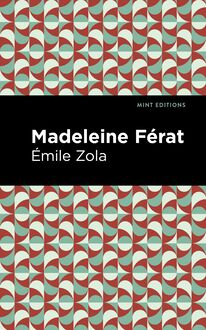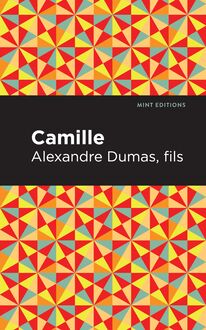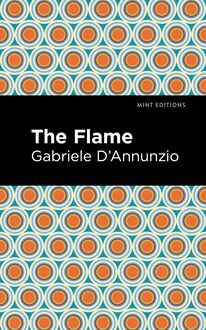-
 Univers
Univers
-
 Ebooks
Ebooks
-
 Livres audio
Livres audio
-
 Presse
Presse
-
 Podcasts
Podcasts
-
 BD
BD
-
 Documents
Documents
-
- Cours
- Révisions
- Ressources pédagogiques
- Sciences de l’éducation
- Manuels scolaires
- Langues
- Travaux de classe
- Annales de BEP
- Etudes supérieures
- Maternelle et primaire
- Fiches de lecture
- Orientation scolaire
- Méthodologie
- Corrigés de devoir
- Annales d’examens et concours
- Annales du bac
- Annales du brevet
- Rapports de stage
La lecture à portée de main
Vous pourrez modifier la taille du texte de cet ouvrage
Découvre YouScribe en t'inscrivant gratuitement
Je m'inscrisDécouvre YouScribe en t'inscrivant gratuitement
Je m'inscrisEn savoir plus
Vous pourrez modifier la taille du texte de cet ouvrage
En savoir plus

Description
The Flame (1900) is a novel by Gabriele D’Annunzio. Inspired by the author’s interpretation of the work of Friedrich Nietzsche and Walter Pater, The Flame is a semi-autobiographical account of the end of D’Annunzio’s relationship with famed actress Eleonora Dusa. Considered a central text of Italian Decadentism, the novel has earned comparisons to the work of Oscar Wilde and Joris-Karl Huysmans. “With an all-comprehensive glance, she looked around at all the beauty of this last twilight of September. In the dark wells of her eyes were reflected the circles of light made by the oar as it flashed in the water, which was illuminated by the glittering angels that shone from afar on the campaniles of San Marco and San Giorgio Maggiore.” Venice, a symbol of the Renaissance, is changing. The churches and canals of old remain, but an era of cultural achievement is coming to a close. As the public anticipates the death of legendary composer Richard Wagner, who has taken to his deathbed at the palace of Ca’ Vendramin Calergi, Stelio Effrena dreams of establishing his reputation as one of Italy’s greatest poets. Filled with theories of art and philosophies of life, possessing an undeniable mastery of language, he nevertheless feels uninspired by his muse, the aging actress La Foscarina. Meditative and introspective, The Flame has attracted praise for its portrayal of nineteenth century Venice, a city seemingly lost in time. With a beautifully designed cover and professionally typeset manuscript, this edition of Gabriele D’Annunzio’s The Flame is a classic work of Italian literature reimagined for modern readers.
Sujets
Informations
| Publié par | Mint Editions |
| Date de parution | 21 juin 2021 |
| Nombre de lectures | 0 |
| EAN13 | 9781513294056 |
| Langue | English |
| Poids de l'ouvrage | 2 Mo |
Informations légales : prix de location à la page 0,0500€. Cette information est donnée uniquement à titre indicatif conformément à la législation en vigueur.
Extrait
The Flame
Gabriele D’Annunzio
The Flame was first published in 1900.
This edition published by Mint Editions 2021.
ISBN 9781513291208 | E-ISBN 9781513294056
Published by Mint Editions®
minteditionbooks.com
Publishing Director: Jennifer Newens
Design & Production: Rachel Lopez Metzger
Project Manager: Micaela Clark
Translated by: Dora Ranous
Typesetting: Westchester Publishing Services
C ONTENTS B OOK I. T HE E PIPHANY OF THE F LAME I. T HE B ELLS OF S AN M ARCO II. T HE F ACE OF T RUTH III. T HE N UPTIALS OF A UTUMN AND V ENICE IV. T HE S PIRIT OF M ELODY V. T HE E PIPHANY OF THE F LAME VI. T HE P OET ’ S D REAM VII. T HE P ROMISE VIII. “T O C REATE WITH J OY !” B OOK II. T HE E MPIRE OF S ILENCE I. “I N T IME !” II. A FTER THE S TORM III. A F ALLEN G IANT IV. T HE M ASTER ’ S V ISION V. S OFIA VI. A B ROTHER TO O RPHEUS VII. O NLY O NE C ONDITION VIII. I LLUSIONS IX. T HE L ABYRINTH X. T HE P OWER OF THE F LAME XI. R EMINISCENCE XII. C ASSANDRA ’ S R EINCARNATION XIII. T HE S TORY OF THE A RCHORGAN XIV. T HE W ORLD ’ S B EREAVEMENT XV. T HE L AST F AREWELL
BOOK I
THE EPIPHANY OF THE FLAME
To Time and to Hope
Without hope, it is impossible to find the unhoped-for.
—H ERACLITUS OF E PHESUS
He who sings to the god a song of hope shall see his wish accomplished.
—Æ SCHYLUS OF E LEUSIS
Time is the father of miracles.
—H ARIRI D I B ASRA
I
T HE B ELLS OF S AN M ARCO
“Stelio, does not your heart quail a little, for the first time?” inquired La Foscarina, with a fleeting smile, as she touched the hand of the taciturn friend seated beside her. “I see that you are pale and thoughtful. Yet this is a beautiful evening for the triumph of a great poet.”
With an all-comprehensive glance, she looked around at all the beauty of this last twilight of September. In the dark wells of her eyes were reflected the circles of light made by the oar as it flashed in the water, which was illuminated by the glittering angels that shone from afar on the campaniles of San Marco and San Giorgio Maggiore.
“As always,” she went on, in her sweetest tones, “as always, everything is in your favor. On such an evening as this, what mortal could shut out from his mind the dreams that you may choose to evoke by the magic of your words? Do you not feel already that the multitude is well disposed to receive your revelation?”
Thus, delicately, she flattered her friend; thus she pleased herself by exalting him with continual praise.
“It is impossible to imagine a more magnificent and unique festival than this, to persuade so disdainful a poet as you to come forth from his ivory tower. For you was reserved this rare joy; to communicate for the first time with the people in a sovereign place like the Hall of the Greater Council, from the platform where once the Doge harangued the assembled patricians, with the Paradiso of Tintoretto for a background, and overhead the Gloria of Veronese.”
Stelio Effrena looked long and searchingly into her eyes.
“Do you wish to intoxicate me?” he said, with a sudden laugh. “Your words remind me of the soothing cup offered to a man on his way to the scaffold. Ah, well, my friend, it is true: I own that my heart quails a little.”
The sound of applause rose from the Traghetto di San Gregorio, echoed through the Grand Canal, reverberating among the porphyry and serpentine discs ornamenting the ancient mansion of the Dario, which now leaned over slightly, like a decrepit courtesan loaded with her jewels.
The royal barge passed.
“There is the one person among your audience whom etiquette demands that you shall crown with some of your flowers of oratory,” pursued the charming flatterer, alluding to the Queen. “I believe that, in one of your earlier books, you own to a taste and respect for ceremonials. One of your most extraordinary flights of fancy is that description of a day of Charles the Second, King of Spain.”
When the royal barge passed the gondola, the man and the woman saluted it. The Queen, recognizing the poet, the author of Persephone , and the distinguished tragic actress, turned to gaze at them with a movement of instinctive curiosity. She was blonde and rosy, and her face was lighted by her ever-ready smile, as she looked out from the cloud of creamy Buranesi laces clinging around her shoulders. Beside her sat Andriana Duodo, the patroness of Burano, where, on that industrious little island, she cultivated flax, and raised the most marvelous old-fashioned flowers.
“Does it not seem to you that the smiles of those two women are so similar as to be twin-like?” said La Foscarina, gazing at the silvery ripples in the wake of the barge, wherein the double light seemed to prolong its self.
“The Countess has a magnificent and ingenuous soul—one of those rare Venetian spirits that preserve their warmth, as their ancient paintings retain their vivid color,” said Stelio, earnestly, as if in gratitude. “I have an absolute devotion for her sensitive hands. They fairly quiver with pleasure when they touch rare lace or rich velvet, lingering over the texture with a grace that seems almost shy of betraying such voluptuous joy in mere touch. One day, when I had accompanied her to the gallery of the Academia, she stopped before the Massacre des Innocents by the first Bonifazio. You recollect, of course, the green robe of the prostrate woman that one of Herod’s soldiers is about to kill—a thing impossible to forget! She paused long before it, seeming fairly to radiate from her own person the perfect joy that filled her senses; then she said to me, ‘Let us leave this place now, Effrena! Take me away, but I must leave my eyes on that robe—I cannot look at anything more!’ Ah, do not smile at her, dear friend! She was perfectly simple and sincere in saying that: she really did leave her spiritual vision behind her on that bit of canvas which Art, with a touch of color, has made the center of an infinitely pleasurable mystery. Besides, it was really a blind woman that I accompanied there, but I was suddenly seized with reverence for the privileged soul for whom the magic of color had power to abolish for the moment all memory of commonplace life, and to cut off all other worldly communication. What should you call such a state of mind? A filling of life’s goblet to the brim, it seems to me. It is exactly what I should like to do tonight, if I were not discouraged.”
A new clamor, louder and more prolonged, rose between the two guardian columns of granite, as the royal barge approached the bank of the Piazzetta, now black with the waiting throng. During the slight pause that followed, the movement of the crowd shifted, like the changing of eddies in a current, and all the galleries of the Palace of the Doges were filled with a confused buzzing, like the mysterious murmur within a sea-shell. Suddenly the buzz rose to a shout, rending the clear air and finally dying away in the gathering twilight. The multitude seemed to realize the divinity of that poetic hour, amid those incomparable surroundings; and perhaps, in its acclaim to youthful royalty and beauty, it expressed a vague longing to forget its prosaic existence, and to revel in the gift of eternal poetry with which its storied walls and waters were endowed.
“Do you know, Perdita,” Stelio suddenly exclaimed, “of any other place in the world that possesses, like Venice, at certain times, the power to stimulate all the forces of human life by the exaltation of all desires to a feverish intensity? Do you know of any more irresistible temptress?”
She whom he called Perdita did not reply; she bent her head as if from desire to concentrate her thoughts; but through all her being she felt the indefinable thrill always felt at the sound of the voice of her friend when it revealed the vehemence and passionate soul toward which this woman was drawn by a mingling of love and terror that had no limit.
“Peace! Oblivion! Do you find them down there, at the end of that deserted canal, when you go home exhausted and fevered after inhaling the commingled breath of the crowd that you are able to rouse to wild enthusiasm by a single gesture? As for myself, when I float on these dead waters, I feel my vital powers increase with bewildering rapidity; at certain times my brain seems on fire, as if I were in delirium.”
“The flame and the power are within yourself, Stelio,” said La Foscarina almost humbly, without raising her eyes.
He was silent, absorbed. Poetic imagery and impetuous music took form within his brain, as if by virtue of some magic fecundation; and his spirit reveled in the unexpected delight of that flood of inspiration.
It was still that hour which, in one of his books, he had called “Titian’s hour,” because all things glowed with a rich golden light, like the nude figures of that great painter, appearing almost to illumine the sky rather than to receive light from it.
“Perdita,” said the poet, who, at the sight of so many things multiplying their beauties around him, was conscious of a kind of intellectual ecstasy, “does it not seem to you that we are following the funeral train of the dead Summer? There she lies in her funereal barge, robed in golden draperies, like a Doge’s wife, like a Loredana, a Morosina, or a Soranza of the golden age; and her cort è ge conducts her toward the Isle of Murano, where some lord of the flames will place her in a coffin of opaline crystal, so that, submerged in the waters of the lagoon, she can, at least, through her transparent eyelids, behold the supple movement of the seaweed, and thus fancy herself enwrapped in the undulating tresses of her own hair, while waiting for the sun of resurrection to dawn.”
A spontaneous smile spread over La Foscarina’s face, born in her eyes, which glowed as if they really had beheld the vision of the beautiful dead.
“Do you know, Perdita,” resumed Stelio, after a moment’s pause, during which both gazed at a file of small boats filled with fruit,
-
 Univers
Univers
-
 Ebooks
Ebooks
-
 Livres audio
Livres audio
-
 Presse
Presse
-
 Podcasts
Podcasts
-
 BD
BD
-
 Documents
Documents
-
Jeunesse
-
Littérature
-
Ressources professionnelles
-
Santé et bien-être
-
Savoirs
-
Education
-
Loisirs et hobbies
-
Art, musique et cinéma
-
Actualité et débat de société
-
Jeunesse
-
Littérature
-
Ressources professionnelles
-
Santé et bien-être
-
Savoirs
-
Education
-
Loisirs et hobbies
-
Art, musique et cinéma
-
Actualité et débat de société
-
Actualités
-
Lifestyle
-
Presse jeunesse
-
Presse professionnelle
-
Pratique
-
Presse sportive
-
Presse internationale
-
Culture & Médias
-
Action et Aventures
-
Science-fiction et Fantasy
-
Société
-
Jeunesse
-
Littérature
-
Ressources professionnelles
-
Santé et bien-être
-
Savoirs
-
Education
-
Loisirs et hobbies
-
Art, musique et cinéma
-
Actualité et débat de société
- Cours
- Révisions
- Ressources pédagogiques
- Sciences de l’éducation
- Manuels scolaires
- Langues
- Travaux de classe
- Annales de BEP
- Etudes supérieures
- Maternelle et primaire
- Fiches de lecture
- Orientation scolaire
- Méthodologie
- Corrigés de devoir
- Annales d’examens et concours
- Annales du bac
- Annales du brevet
- Rapports de stage


















